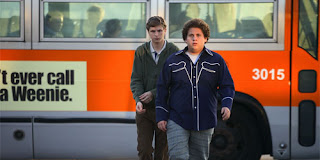3:10 to Yuma
Director:
James Mangold
Writers:
Halsted Welles
Michael Brandt
Derek Haas
Starring:
Russell Crowe
Christian Bale
Peter Fonda
Director:
James Mangold
Writers:
Halsted Welles
Michael Brandt
Derek Haas
Starring:
Russell Crowe
Christian Bale
Peter Fonda
The Darjeeling Limited
Director:
Wes Anderson
Writers:
Wes Anderson
Roman Coppola
Jason Schwartzman
Starring:
Owen Wilson
Adrian Brody
Jason Schwartzman
Anjelica Huston
Natalie Portman
Director:
Wes Anderson
Writers:
Wes Anderson
Roman Coppola
Jason Schwartzman
Starring:
Owen Wilson
Adrian Brody
Jason Schwartzman
Anjelica Huston
Natalie Portman
Eastern Promises
Director:
David Cronenberg
Writers:
Steven Knight
Starring:
Viggo Mortensen
Naomi Watts
Vincent Cassel
Director:
David Cronenberg
Writers:
Steven Knight
Starring:
Viggo Mortensen
Naomi Watts
Vincent Cassel






































